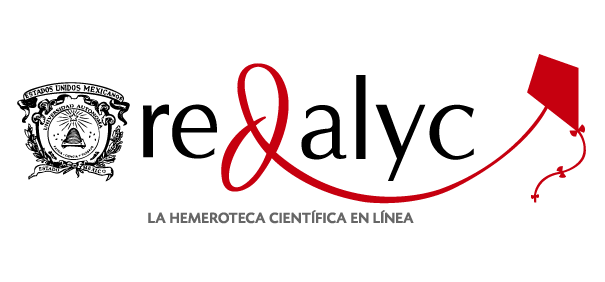CAREERS IN CONTEXT AND AGENCY IN TENSION
ANALYZING THE NARRATIVES OF NON-TRADITIONAL TOURISM PROFESSIONALS FROM A SUSTAINABILITY PERSPECTIVE
DOI:
https://doi.org/10.12712/rpca.v18i4.64396Abstract
This study investigates how the city, as a contextual factor, influences career sustainability. It involved 25 interviews with tourism professionals in Porto Alegre, a Brazilian capital with a non-traditional tourism focus. The thematic analysis identified four main characteristics of career trajectories: (1) the influence of city identity; (2) careers in tourism by chance; (3) change agents, with a focus on behavioral influence; and (4) a return to origins, involving the reinterpretation of career paths upon entering the tourism field. The findings reveal the diversity of contexts that impact career sustainability and constrain individual agency.
Downloads
References
Akkermans, J., & Kubasch, S. (2017). #Trending topics in careers: A review and future research agenda. Career Development International, 22(6), 586–627. https://doi.org/10.1108/CDI-08-2017-0143
Akkermans, J., Richardson, J., & Kraimer, M. L. (2020). The Covid-19 crisis as a career shock: Implications for careers and vocational behavior. Journal of Vocational Behavior, 119, 103434. https://doi.org/10.1016/j.jvb.2020.103434
Akkermans, J., Spurk, D., & Fouad, N. (2021). Careers and career development. In Oxford Research Encyclopedia of Psychology (Issue July). https://doi.org/10.1093/acrefore/9780190236557.013.557
Bal, P. M., Matthews, L., Dóci, E., & McCarthy, L. P. (2021). An ideological analysis of sustainable careers: Identifying the role of fantasy and a way forward. Career Development International, 26(1), 83–101. https://doi.org/10.1108/CDI-05-2020-0114
Baruch, Y. (2015). Organizational and labor markets as career ecosystem. In A. De Vos & B. I. J. M. Van der Heijden (Eds.), Handbook of Research on Sustainable Careers (pp. 364–380). Edward Elgar Publishing. https://doi.org/10.4337/9781782547037.00029
Baruch, Y., & Rousseau, D. M. (2019). Integrating psychological contracts and ecosystems in career studies and management. Academy of Management Annals, 13(1), 84–111.
Beni, M. (1990). SISTUR: Estudo do turismo face à moderna teoria de sistemas-Turismo em análise. São Paulo: ECA/USP.
Chudzikowski, K., Gustafsson, S., & Tams, S. (2020). Constructing alignment for sustainable careers: Insights from the career narratives of management consultants. Journal of Vocational Behavior, 117, 103312. https://doi.org/10.1016/j.jvb.2019.05.009
Cresswell, J. W., & Miller, D. L. (2000). Determining validity in qualitative inquiry. Theory Into Practice, 39(3), 124–130. https://doi.org/10.1207/s15430421tip3903_2
Curşeu, P. L., Semeijn, J. H., & Nikolova, I. (2021). Career challenges in smart cities: A sociotechnical systems view on sustainable careers. Human Relations, 74(5), 656–677. https://doi.org/10.1177/0018726720949925
De Vos, A., Dujardin, J.-M., Gielens, T., & Meyers, C. (2016). Developing sustainable careers across the lifespan. In Developing Sustainable Careers Across the Lifespan: European Social Fund Network on Career and AGE (Age, Generations, Experience) (1st ed.). Springer. https://doi.org/10.1007/978-3-319-47741-1
De Vos, A., & Van der Heijden, B. I. J. M. (2017). Current thinking on contemporary careers: The key roles of sustainable HRM and sustainability of careers. Current Opinion in Environmental Sustainability, 28, 41–50. https://doi.org/10.1016/j.cosust.2017.07.003
De Vos, A., Van der Heijden, B. I. J. M., & Akkermans, J. (2020). Sustainable careers: Towards a conceptual model. Journal of Vocational Behavior, 117, 103196. https://doi.org/10.1016/j.jvb.2018.06.011
Denzin, N. K., & Lincoln, Y. S. (2011). The Sage handbook of qualitative research (4th ed.). SAGE Publications, Inc.
Elliot, J. (2011). Narrative and new developments in the social sciences. SAGE Publications. https://doi.org/10.4135/9780857020246
Forrier, A., De Cuyper, N., & Akkermans, J. (2018). The winner takes it all, the loser has to fall: Provoking the agency perspective in employability research. Human Resource Management Journal, 28(4), 511–523. https://doi.org/10.1111/1748-8583.12206
Friedman, V. J. (2011). Revisiting social space: Relational thinking about organizational change. Research in Organizational Change and Development, 19, 233–257. https://doi.org/10.1108/S0897-3016(2011)0000019010
Greenhaus, J. H., & Kossek, E. E. (2014). The contemporary career: A work–home perspective. Annual Review of Organizational Psychology and Organizational Behavior, 1(1), 361–388. https://doi.org/10.1146/annurev-orgpsych-031413-091324
Gross, M. J. (2014). Lifestyle, tourism. In J. Jafari & H. Xiao (Eds.), Encyclopedia of Tourism (pp. 1–3). Springer International Publishing. https://doi.org/10.1007/978-3-319-01669-6_277-1
Jones, C., & Svejenova, S. (2017). The architecture of city identities: A multimodal study of Barcelona and Boston. Research in the Sociology of Organizations, 54B, 203–234. https://doi.org/10.1108/S0733-558X2017000054B007
Jovchelovitch, S., & Bauer, M. W. (2000). Narrative interviewing. In Qualitative Researching with Text, Image and Sound: A Practical Handbook (pp. 3–5). London: LSE Research Online.
Lawrence, B. S., Hall, D. T., & Arthur, M. B. (2015). Sustainable careers then and now. In A. De Vos & B. I. J. M. Van der Heijden (Eds.), Handbook of Research on Sustainable Careers (pp. 432–450). Edward Elgar Publishing. https://doi.org/10.4337/9781782547037.00033
Montanari, F., Mizzau, L., Razzoli, D., & Rodighiero, S. (2021). City context and subjective career success: How does creative workers’ need for recognition filter city identity? Human Relations, 74(5), 729–750. https://doi.org/10.1177/0018726720956700
Objetivos de Desenvolvimento Sustentável. (2024). Objetivos de Desenvolvimento Sustentável Brasil. https://brasil.un.org/pt-br/sdgs
Riessman, C. K. (2012). Analysis of personal narratives. In The SAGE Handbook of Interview Research: The Complexity of the Craft (pp. 367–380). https://doi.org/10.4135/9781452218403.n26
Serviço Brasileiro de Apoio às Micro e Pequenas Empresas. (2022). MEIs que atuam na área de turismo têm vantagens em se formalizar. https://sebrae.com.br/sites/PortalSebrae/artigos/meis-que-atuam-na-area-de-turismo-tem-vantagens-em-se-formalizar,fbd53b4568fb4810VgnVCM100000d701210aRCRD
Tams, S., Kennedy, J. C., Arthur, M. B., & Chan, K. Y. (2021). Careers in cities: An interdisciplinary space for advancing the contextual turn in career studies. Human Relations, 74(5), 635–655. https://doi.org/10.1177/0018726720964261
The United Nations Tourism. (2008). Glossary of tourism terms. https://www.unwto.org/glossary-tourism-terms
Van der Heijden, B., & De Vos, A. (2015). Sustainable careers: Introductory chapter. In B. I. J. M. Van der Heijden & A. De Vos (Eds.), Handbook of Research on Sustainable Careers (pp. 1–19). Edward Elgar Publishing. https://doi.org/10.4337/9781782547037.00006
Van der Heijden, B., De Vos, A., Akkermans, J., Spurk, D., Semeijn, J., Van der Velde, M., & Fugate, M. (2020). Sustainable careers across the lifespan: Moving the field forward. Journal of Vocational Behavior, 117, 103344. https://doi.org/10.1016/j.jvb.2019.103344
Downloads
Published
Issue
Section
License
Authors retain the copyright and grant the journal the right of first publication with simultaneously license under the Creative Commons Attribution License, permitting sharing the paper with acknowledgment of its first publication in this journal.
Authors are allowed to take additional contracts for non-exclusive distribution of the version of the paper published in this journal (eg, publish in institutional repository or publish as a chapter of a book), always with an acknowledgment of its initial publication in this journal.


